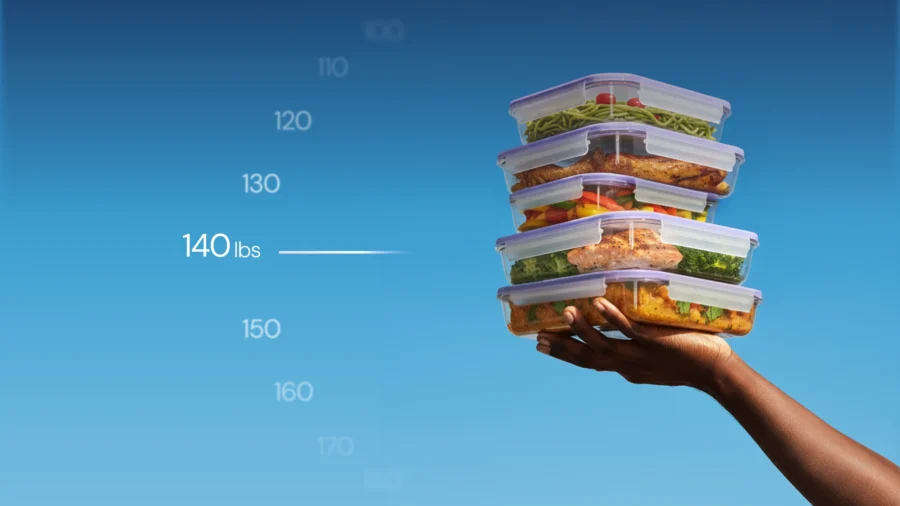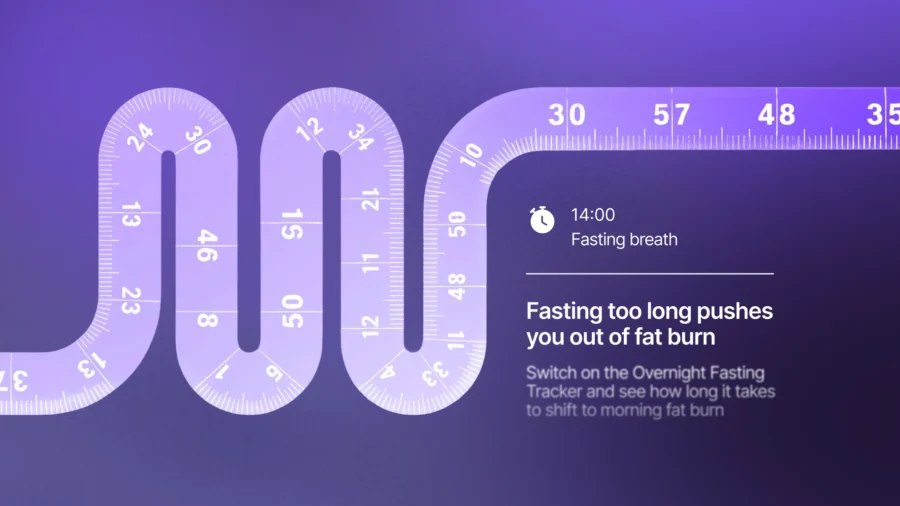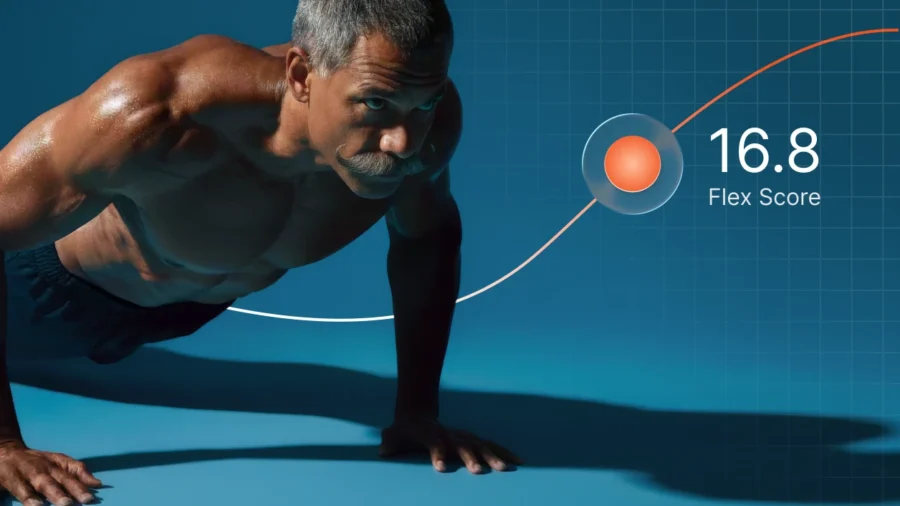Beat your weight loss plateau

Break through the plateau and start seeing real change
Hitting a weight loss plateau can be one of the most frustrating experiences on your wellness journey. You’ve put in the hard work and seen results, but suddenly, the scale stops moving. What gives?
It’s tempting to think the answer lies in pushing yourself harder, cutting calories, working out for hours, or eliminating entire food groups. Maybe you’ve even considered turning to weight loss medications like GLP-1s.
The truth is sustainable weight loss isn’t about willpower, deprivation, or restriction. Real, long-term success comes from understanding and mastering metabolic flexibility - the ability of your mitochondria to efficiently shift between burning fat and carbohydrates for energy. This ability is critical for effective weight management, as it helps your mitochondria to burn fat efficiently1, even when not engaged in physical activity.
Adjusting various lifestyle factors, including your diet, exercise, stress levels, and sleep quality, is key to improving your metabolic flexibility, breaking through weight loss plateaus, and maintaining weight loss for the long haul.
“The difference with Lumen is that slow and steady wins the race. It’s about being intentional. It’s not about being ridiculously restrictive.”
Julz, lost 10 pounds in 3 months
What is a weight loss plateau, and why does it happen?
A weight loss plateau occurs when you stop losing weight for an extended period despite maintaining exercise and healthy dietary habits. While it might feel discouraging, hitting a plateau after initial weight loss is common and is your body’s way of taking time to reset. It’s a natural and necessary part of a sustainable weight loss process, as maintaining weight loss is a victory in itself, with 80% of people regaining lost weight after traditional dieting2.

There are several reasons for why a weight loss plateau happens:
Set point theory: The set point theory suggests that our bodies have a natural weight range, determined by genetics and environment, where they feel most comfortable. When trying to lose weight, our bodies work hard to stay within this range, making significant weight loss challenging.
Metabolic adaptation: A weight maintenance phase allows your body to adapt to its new weight, adjusting your basal metabolic rate (BMR) and hormone levels to establish a new, lower set point. As you lose weight, your body requires fewer calories to function3. This means that the same caloric intake that initially resulted in weight loss may no longer be sufficient, leading to a plateau.
Hormonal changes: During weight loss, levels of the hunger hormone ghrelin increase, urging you to eat more to preserve energy stores. This is a survival mechanism that makes immediate further weight loss difficult.
Loss of muscle mass: Along with fat, your body may lose muscle mass during weight loss. Since muscle tissue burns more calories than fat, a decrease in muscle can slow your metabolism4, making it harder to continue losing weight.
Dietary habits: Sometimes, as people lose weight, they may unconsciously loosen their dietary restrictions or indulge in high-calorie foods, which can counteract the calorie deficit needed for further weight loss.
Stress and sleep: Elevated stress levels and poor sleep can affect hormones like cortisol5, leading to weight retention and making it more challenging to break through a plateau.
“With the combination of metabolic feedback and daily plans Lumen gives me a structure to work with, enabling me to fuel the best for my daily requirements.”
Maria, 52, England
How can you break your weight loss plateau?
You can break your weight loss plateau by making the necessary lifestyle changes to optimize your metabolic flexibility. Let’s find out how.
Try carb cycling
Carb cycling and cyclical ketosis are dietary strategies designed to optimize fat loss, athletic performance, and metabolic flexibility by varying carb intake. They work by depleting and replenishing glycogen, your carb stores, which can help manage energy levels, fat burn, and muscle maintenance.

Carb cycling is a method where you alternate between high-carb and low-carb days throughout the week. This approach balances the benefits of using carbs for energy and athletic performance with periods of lower carb intake for fat burning. On high-carb days, you consume more carbohydrates, which replenishes glycogen stores in your muscles and liver. On low-carb days, you deplete these stores, encouraging your body to rely on fat as its primary energy source.
Cyclical ketosis is a variation of the ketogenic diet, where you alternate between periods of strict low-carb, high-fat intake (ketosis) and high-carb refeeding days to refill glycogen stores 6.

“Cycling through low and medium daily carb intake promotes better metabolic flexibility, allowing our body to shift between carb and fat use for energy easily.”
Dr. Michal Mor, Co-Founder & VP of Product
Incorporate intermittent fasting
Intermittent fasting can improve metabolic flexibility7 and help you shed pounds8 , allowing you to overcome plateaus more effectively.
When fasting, the body shifts from using glucose as a primary energy source in the fed state to glycogen and, finally, stored body fat. This process contributes to metabolic flexibility.
It’s important to find your optimal fasting schedule by measuring when your body enters into fat burn or carb burn. Overextending a fast can cause the body to release stress hormones, such as cortisol, in response to the perceived lack of energy intake.
These stress hormones can push the mitochondria into a state of carbohydrate metabolism, where they prioritize burning carbohydrates over fats for energy. This shift arises from the body’s attempt to preserve fat stores if overextended fasting continues.
You can find your ideal fasting window by measuring your metabolism throughout your fast. For example, if you measure your metabolism after 12 hours of fasting and find you’re burning fats, try extending your fast and measuring your metabolism every 1-2 hours to determine what your mitochondria are burning for energy. If you continue burning fat, this may indicate your glycogen stores are emptying and your fast is effective. If you’ve shifted back to carb burn, then you’ve passed your fasting sweet spot. That’s a sign to end your fast and eat something nutritious.
“Knowing whether your body is burning fat or burning carbs is a process called biofeedback. If you don’t know if you’re doing things right or wrong, you’re never going to improve.”
Dr. Jason Fung
Build muscle mass
Weightlifting plays a crucial role in enhancing metabolic flexibility. Because your muscles are packed with mitochondria, the more muscle mass you gain, the more mitochondria you’ll have. This translates to increased fat burn at rest and a quick shift to carb burn when you need a boost. Increasing muscle mass also helps with fat loss and contributes to body recomposition—the process of reducing body fat while increasing or preserving muscle mass.
If lifting weights isn’t for you, walking is an effective and low-impact exercise that can help you burn fat. Walking regularly increases daily energy expenditure and when combined with a calorie-controlled diet, can lead to a calorie deficit, promoting fat loss. Additionally, walking can help improve muscle insulin sensitivity9, reduce belly fat, and enhance overall cardiovascular health.
No matter what form of exercise you’re doing, make sure you’re consistently progressing and continuing to challenge yourself. If you get to a point with your exercise routine where you’re not breaking a sweat or feeling that exertion, that might mean your body has adapted, and you’re not burning calories at the same rate.
Improve your sleep quality
Insufficient sleep disrupts the balance of ghrelin and leptin, hormones that regulate hunger and satiety, respectively5. This might lead you to eat more than you might otherwise.
A lack of sleep negatively affects insulin sensitivity, which can impair the body’s ability to process glucose efficiently. This can increase the risk of fat storage, particularly around the abdomen. Poor sleep also reduces energy levels, making it harder to power through workouts.
Getting 7-9 hours of quality sleep can help your body shift from carb burn to fat burn overnight, which boosts metabolic flexibility. To get quality sleep, eat your carbs in the first half of the day, have an earlier dinner, and avoid bright screens before bed.
“I think that anybody can do this if I can do it after four years of not losing weight –only gaining weight – then finding Lumen and losing 42 pounds. I am just amazed at what my body has been capable of doing.”
Stephanie, 42, Ohio
People also asked:
Is a weight loss plateau good?
Although frustrating, a weight loss plateau is not bad. This is your body’s way of adjusting to your new weight. In fact, weight plateaus are a healthy and normal response to weight loss over time..
How do I get past a weight loss plateau?
Some things that can help with getting past a weight loss plateau include carb cycling, intermittent fasting, weightlifting, and prioritizing quality sleep.
Revitalize your metabolic flexibility to beat your weight loss plateau
When you hit a weight loss plateau, it can be frustrating, but it’s important to remember that it’s a normal part of the process. Embrace the plateaus as adjustment periods and stay focused on your long-term health and well-being. Achieving and maintaining weight loss is not a sprint, it’s more of a marathon. Just like weight gain didn’t happen overnight, sustainable weight loss takes time. Begin by improving your metabolic flexibility to maximize your results and break your weight loss plateau.







 Digital download
Digital download 


